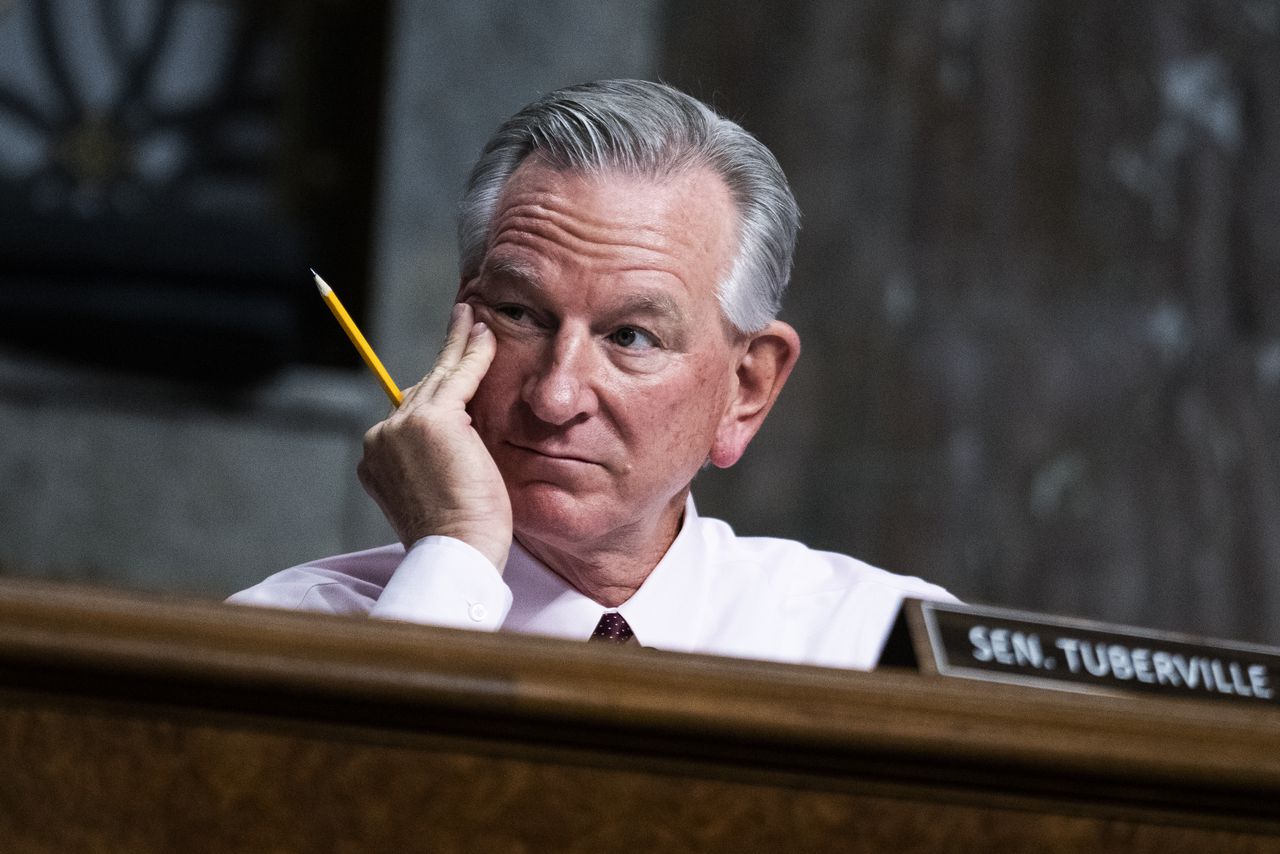Tuberville defends hold on nominations over DOD abortion policy
Sen. Tommy Tuberville on Tuesday told Defense Secretary Lloyd Austin that his hold on military nominations over new department’s policies expanding abortion access to service members is necessary because the agency did not consult with Congress.
“I want to be clear on this: My hold has nothing to do with the Supreme Court decision to the access of abortion,” Alabama’s senior senator told Austin during Tuesday’s Senate Armed Services Committee hearing. “This is about not forcing the taxpayers of this country to fund abortions. That’s been a bipartisan consensus for more than 40 years.”
Tuberville has put holds on nearly 160 military nominations over the Defense Department policy instituted earlier this month that allow service members to request administrative absence for “non-covered reproductive health services,” which includes elective abortions and IVF, for themselves or to accompany their partners.
The policies also provide transportation allowances to travel to states where reproductive care is more expansive.
Alabama’s senior senator said the policy, which was made without congressional approval, “contradicts what Congress has actually voted for,” referring to the Hyde Amendment that bans taxpayer-funded abortions except in cases of rape, incest or danger to the life of the mother.
“But now my colleagues on the left think this abortion issue is good for a campaign, and that’s what this shouldn’t be about,” said Tuberville. “I’m not going to let our military be politicized.”
Tuberville said he wants America’s military to be strong, “but I also want the administration to follow the law. As long as I have a voice in this body. Congress will write the laws. Not the Secretary of Defense, not the Joint Chiefs.”
Austin, who urged the senator to reconsider the hold, said the policy is on “strong legal ground,” noting that it is not a law but a policy.
He said one in five service members are women, 80,000 of whom are stationed in areas without access to non-covered reproductive healthcare.
“We obviously don’t pass laws in the Department of Defense, but again, I assure you, we have great respect for this body, Congress, and we will do everything in our power to make sure that we work with Congress,” Austin said.
